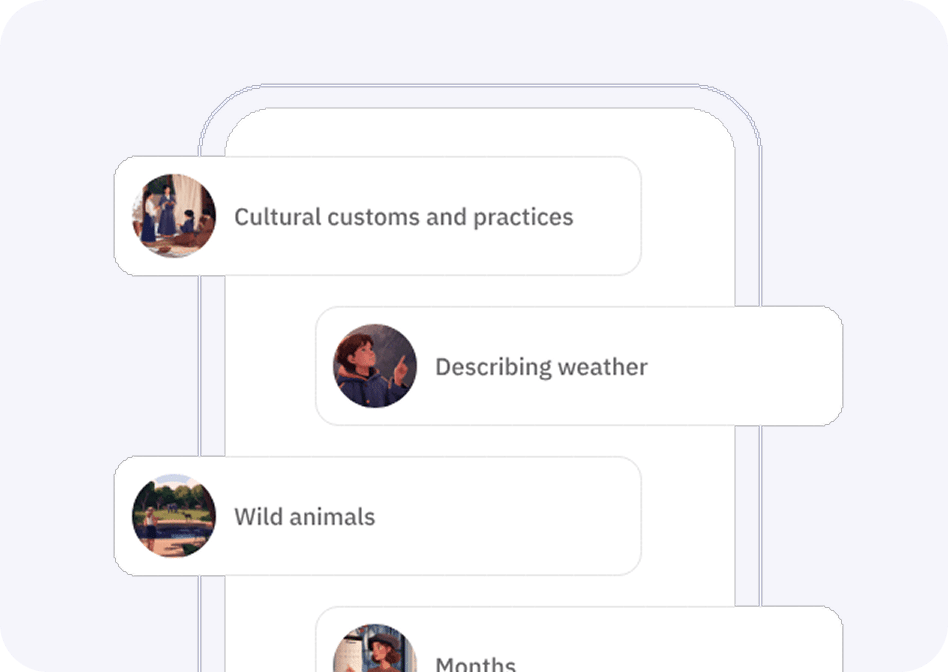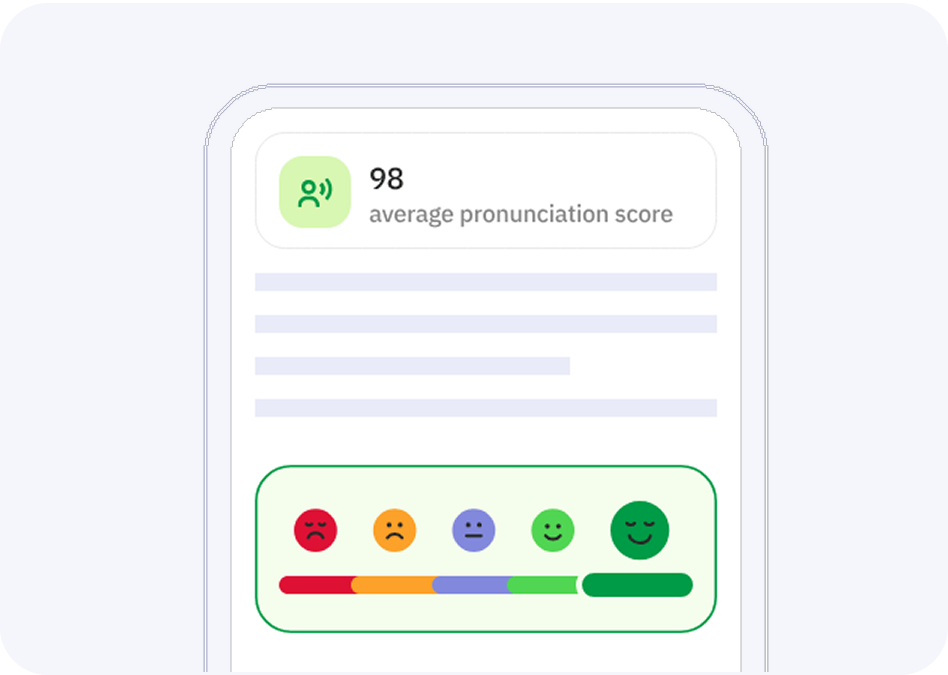German Vocabulary
Learning a new language opens gates to cultural nuances, opportunities, and personal growth. German, in particular, is a key language spoken by millions across Europe and the world. Mastering German vocabulary is crucial for anyone looking to communicate effectively, delve into German literature, do business, or simply embrace a new culture. Utilizing modern tools like Talkpal AI can significantly expediate your language learning process. This SEO-optimized guide explores the dimensions of German vocabulary and offers practical advice on how to learn and retain new words effectively.

The talkpal difference

Personalized Education
Every student has a distinct approach to acquiring knowledge. Through Talkpal technology, we analyze the study patterns of millions simultaneously to build highly effective educational environments that adapt specifically to individual needs. This ensures your journey is fully customized based on your interests and goals rather than a generic curriculum.

Cutting-Edge Technology
Our central mission is to lead the way in providing universal access to a tailored learning journey. By utilizing the most recent breakthroughs in artificial intelligence and modern software, we ensure that everyone can benefit from a sophisticated and personalized educational experience.

Making Learning Fun
We have transformed the study process into a delightful activity. Staying motivated while learning online can often be a struggle, so we designed Talkpal to be incredibly captivating. The platform is so engaging that users frequently prefer mastering new language skills over playing video games.
LANGUAGE LEARNING EXCELLENCE
The most efficient way to learn a language
Try Talkpal for freeIntroduction to Mastering German Vocabulary
1. The Basics of German Vocabulary
When embarking on the journey to master German, begin with the basics. Core vocabulary consists of words that are commonly used in everyday conversations including greetings, numbers, days of the week, and basic verbs and adjectives. Establishing a solid foundation with these fundamental terms will pave the way for more complex language learning. Tools like Talkpal AI offer interactive exercises that reinforce these basics, making the initial stages of language learning engaging and less daunting.
2. Expanding Your Vocabulary with Categories
Once the basics are covered, expand your German vocabulary by learning words in different categories. This method involves grouping new words into themes such as food, weather, family, or emotions. This thematic approach not only eases the learning process but also helps in retaining the new vocabulary better. When using digital tools like Talkpal AI, these categories are often incorporated into lessons to help build a more comprehensive vocabulary bank seamlessly.
3. Utilizing Flashcards
Flashcards have proven to be an effective memory-aid tool in language learning. They promote active recall, which is a cognitive technique essential for strengthening memory. Creating flashcards with German words and their meanings, or even with pictures, can aid in faster recall and better memorization. Digitally, platforms like Talkpal AI often integrate flashcard-style functionalities that allow learners to review vocabulary regularly.
4. The Role of Immersion
Immersing yourself in the language is often touted as one of the best ways to enhance vocabulary. This could involve listening to German music, watching films or speaking with native speakers. Exposure to the language in various contexts deepens understanding and reinforces your mental lexicon organically. Technology-driven tools like Talkpal AI enhance this experience by providing simulated conversations and interactive content that mimic real-life interactions.
5. Consistent Practice
Consistency is key in language learning. Regular practice helps to move new words from short-term to long-term memory, aiding in better retention. Set aside specific times each day for German study. Incorporate varied activities like reading, writing, listening, and speaking, as mixed learning methods help to engage different cognitive areas supporting better retention. Apps like Talkpal AI can help schedule and organize these practice sessions effectively.
6. Advanced Vocabulary Acquisition
As your familiarity with German grows, begin incorporating advanced vocabulary. This includes industry-specific terms, idiomatic expressions, and colloquialisms that bring you closer to a native speaker’s proficiency. Tools like Talkpal AI are invaluable here, offering advanced modules and real-life scenario practices that challenge your comprehension and usage of sophisticated terms.
7. Language Games as Learning Tools
Integrating games into your learning routine can make the acquisition of German vocabulary more enjoyable and less strenuous. Many educational technologies incorporate gamification as a strategy to boost engagement and motivation. Talkpal AI, for instance, includes games that are designed specifically for vocabulary acquisition, providing a fun yet educational way to enhance language skills.
8. Cultural Integration
Understanding the cultural context in which certain words are used can greatly enhance your vocabulary learning. Words often carry cultural significance that isn’t immediately clear without context. Engaging with German culture through media, literature, and interpersonal exchanges can provide deeper insights into the nuances of the language. Features like cultural tips and real-life scenarios are often part of learning platforms like Talkpal AI, enriching the learning experience.
9. Feedback and Correction
Regular feedback is crucial for vocabulary development. This not only helps in correcting mistakes but also in refining language usage according to context. Interactive language tools like Talkpal AI often feature instant feedback mechanisms through AI technologies, providing corrections in real-time and tailoring advice based on individual user performance.
10. Continuous Learning
The journey to mastering German vocabulary does not end once a certain level of proficiency is reached. Language is dynamic and continually evolves. Continuous learning and regular updates to your vocabulary are essential to maintain fluency and understand contemporary usage. Talkpal AI and similar platforms regularly update their content and tools to reflect current usage, ensuring learners are always up-to-date.
By incorporating these strategies and leveraging modern tools like Talkpal AI, learning German vocabulary can be a more structured, enjoyable, and successful venture. Whether for career growth, education, travel, or personal satisfaction, expanding your linguistic abilities in German opens up new horizons.
The most efficient way to learn a language
Try Talkpal for freeFrequently Asked Questions
What is the best way to start learning German vocabulary?
How often should I practice German vocabulary to become fluent?
How important is pronunciation in learning German vocabulary?
What resources are recommended for advanced German vocabulary learning?







